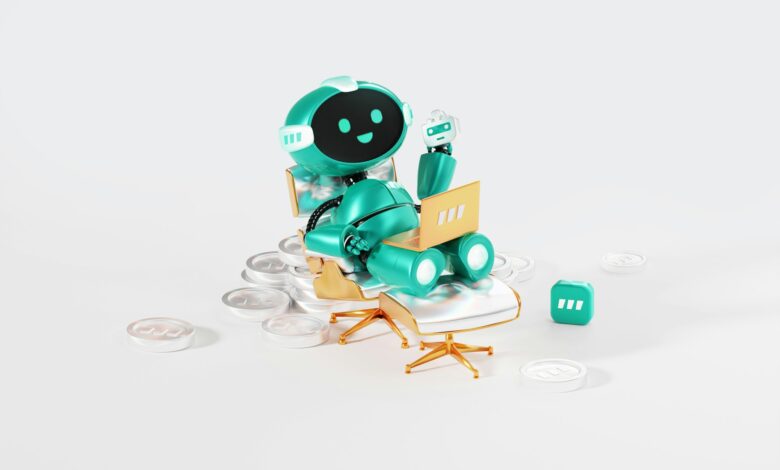
Why Healthcare Needs Smarter Chatbots?
In today’s digital-first world, patient engagement extends far beyond the confines of clinical visits. The global healthcare chatbot market, valued at $345 million in 2022, is projected to exceed $967 million by 2027, growing at a CAGR of 23.8% (Source: MarketsandMarkets). This explosive growth is driven by the urgent need for round-the-clock support, accurate triage, medication reminders, mental health assistance, and remote wellness monitoring.
As healthcare and wellness providers adapt to rising consumer expectations and tighter regulatory demands, AI-powered chatbots are becoming essential infrastructure. Among the leading technologies shaping this shift, OpenAI APIs—including GPT-4—are setting new standards for contextual understanding, natural conversation, and scale. In this blog, we explore how healthcare-focused businesses can harness OpenAI APIs to build HIPAA-aligned, intelligent chatbots that improve outcomes, personalize care, and reduce operational strain.
The Role of OpenAI in Healthcare Chatbots
OpenAI’s language models like GPT-4 offer the ability to understand and generate natural human language. This makes them particularly well-suited for handling patient queries, guiding symptom assessments, generating health-related content, and personalizing wellness journeys. With features like embeddings, function calling, and fine-tuning, OpenAI APIs enable developers to build:
1. Context-Aware Patient Support Agents
These bots can deliver relevant responses by remembering prior patient interactions, integrating with EHR systems, and adapting to the patient’s medical history.
2. Mental Health Companions
Using natural language understanding, chatbots can serve as the first line of defense for mental health support, offering mindfulness exercises, mood tracking, or referral escalation in high-risk cases.
3. Automated Admin Support
From appointment scheduling to insurance verification, chatbots can streamline back-office workflows and reduce the burden on human staff.
Key Advantages of Using OpenAI APIs
HIPAA-Aligned Architecture
While OpenAI does not natively offer HIPAA compliance, you can build HIPAA-aligned applications by deploying API requests within a secure, encrypted infrastructure and storing PHI separately from the AI layer.
Multilingual and Multi-Intent Capabilities
With support for over 50 languages and the ability to handle multiple intents within a single interaction, OpenAI models cater to diverse user demographics and needs.
Reduced Time-to-Market
Instead of training models from scratch, developers can utilize OpenAI’s fine-tuning and prompt engineering features to rapidly build production-ready bots that are easily scalable.
Seamless Integration with EHR, Telemedicine, and IoT Devices
Using function calling and API chaining, OpenAI chatbots can fetch real-time vitals, access care plans, or even guide users through at-home diagnostics.
Top Use Cases for OpenAI-Powered Healthcare Chatbots
Symptom Checker
Instead of browsing generic results, patients can engage in a dialogue that mimics the style of a real consultation. GPT-based bots can analyze symptoms, suggest possible conditions, and recommend next steps.
Medication Management
Bots can remind users to take medication, explain dosage instructions, detect potential drug interactions, and even escalate to pharmacists when needed.
Telehealth Triage
Before routing a patient to a provider, the chatbot collects and summarizes information, reducing provider time and enabling better prioritization.
Behavioral Wellness Coaching
OpenAI can help deliver motivational coaching, fitness goals, diet tracking, and personalized health education based on user responses and habits.
Administrative Automation
Chatbots can manage appointment scheduling, follow-up reminders, insurance eligibility checks, and more, freeing staff from repetitive tasks.
Challenges and Compliance Considerations
While OpenAI APIs are powerful, developers must address the following challenges:
HIPAA Compliance: Ensure no PHI is sent directly to the OpenAI API; use tokenized or abstracted data with secure hosting.
Bias Mitigation: Validate responses and fine-tune models to avoid biased or unsafe health recommendations.
Data Ownership & Auditability: Ensure chat logs and model decisions are traceable and can be audited by regulators or internal teams.
5 Trusted Healthcare Chatbot Development Companies in the USA
1. GeekyAnts: AI-Driven Healthcare App Development at Scale
GeekyAnts is a leading product engineering company with a deep focus on AI-powered digital health solutions. With offices in the U.S., UK, and India, and over 700 projects delivered across 30+ countries, GeekyAnts has helped numerous healthtech startups and enterprises build HIPAA-aligned apps, smart chatbots, and scalable wellness platforms. Their expertise spans OpenAI API integrations, cross-platform frameworks like React Native and Flutter, and robust backends using Node.js, Python, and serverless architectures.
As early contributors to open source and emerging AI tools, GeekyAnts brings both technical depth and regulatory awareness to healthcare and wellness app development. The team also provides end-to-end services—from design systems and PoCs to enterprise-grade deployments—making them a top choice for founders and CTOs seeking future-ready health solutions.
For more information, reach out to GeekyAnts Inc at their U.S. office located at 315 Montgomery Street, 9th & 10th floors, San Francisco, CA 94104. They can be contacted via phone at +1 845 534 6825 or by email at [email protected]. For more details about their services and expertise, visit their official website at www.geekyants.com/en-us.
2. BotsCrew: Conversational AI with Industry-Specific Precision
Clutch Rating: 4.7/5
BotsCrew is a U.S.-based conversational AI development firm specializing in custom chatbots and voice assistants for healthcare, e-commerce, and customer service platforms. Known for its agile approach and domain-driven design, BotsCrew delivers multi-platform, multilingual bots integrated across web, mobile, WhatsApp, and Messenger.
The company has recently prioritized embedding OpenAI-powered capabilities into its bots, enabling context-aware triage in healthcare, automated patient onboarding, and responsive mental wellness support. With a strong reputation for post-launch analytics, conversational UX, and enterprise-grade compliance, BotsCrew has become a trusted partner for organizations seeking human-like automation at scale.
3. STX Next: Full-Stack AI Engineering for Scalable Systems
Clutch Rating: 4.7/5
STX Next is a global software consultancy headquartered in Poland, with a growing U.S. presence and over 500 engineers. Their core strength lies in Python-driven full-stack development, coupled with advanced AI/ML engineering and backend infrastructure expertise.
STX Next supports B2B clients in healthcare, fintech, and logistics with custom-built applications that prioritize data security, cloud scalability, and predictive intelligence. With recent focus areas including GPT-based document summarization, medical data analysis, and secure DevOps automation, STX Next continues to lead enterprise digital transformation initiatives where precision, performance, and compliance are paramount.
4. Iron Forge Development: Scalable Product Engineering with Healthcare Expertise
Clutch Rating: 4.8/5
Iron Forge Development, headquartered in Palm Beach Gardens, Florida, specializes in full-cycle software development with a strong portfolio in healthcare, fintech, and emerging tech. The company is known for transforming early-stage ideas into scalable digital products through structured workshops, rapid prototyping, and custom web and mobile development.
Iron Forge brings significant value to healthcare clients with HIPAA-compliant builds, ERP integrations, and user-centric UI/UX design. Their support model includes tiered maintenance plans and commercialization strategy, making them a reliable partner for startups and mid-sized healthtech companies seeking long-term technical stewardship.
5. Rootstrap: Cross-Functional Development with Emerging AI Integration
Clutch Rating: 4.8/5
Rootstrap, based in Los Angeles, California, is a digital consultancy that excels in building scalable web and mobile applications with a growing focus on AI-driven innovation. With over 750 products launched and experience supporting both startups and enterprise brands, Rootstrap brings deep technical and product strategy expertise to healthcare and wellness projects.
Their services span discovery workshops, rapid prototyping, cloud-native development, and ongoing optimization, making them a strong partner for healthtech companies seeking intelligent, user-first chatbot solutions. Rootstrap’s cross-functional approach combines strategic product thinking with robust engineering execution.
Why Now Is the Time to Build Smart Healthcare Bots
The next wave of healthcare innovation is conversational. OpenAI APIs provide the foundational technology to build secure, human-like, and scalable chatbots that address everything from chronic care management to mental wellness. However, success depends not only on the tech stack but on partnering with a team that understands healthcare workflows, data governance, and user empathy.

